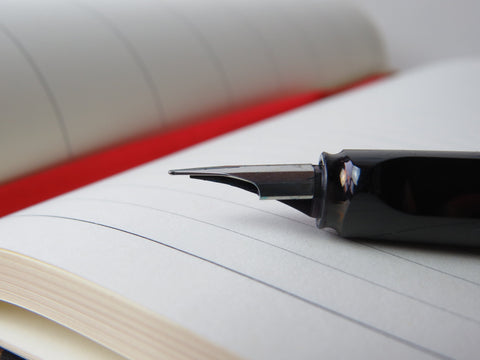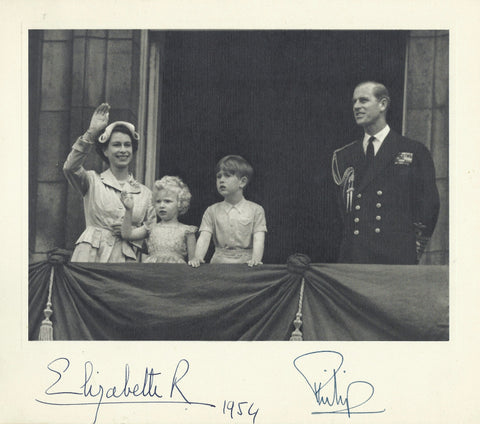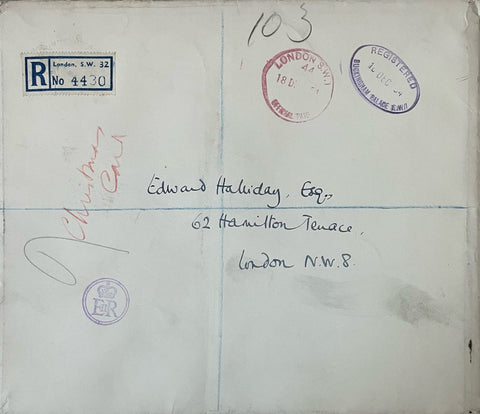One word haunts the autograph collecting community.
Authenticity.
Do you know your autographs - or the signature you're appraising for purchase - are authentic?
How do you tell?
Read on and we'll give you 5 watertight ways to authenticate your autographs.
How big a problem are fake autographs?
Back in 1996, the Washington Post reported that the FBI reckoned 70% of signed sports memorabilia items had faked signatures.
More recently the feds have been quoted suggesting it's around half.
You'll even find figures as high as 80% or even 90% suggested.
Our own autograph specialist Daniel Wade says: "Sadly, we do see a fair number of fakes. It's so disappointing for the owners.
"It's fairly easy to fake an autograph and these days there are lots of avenues for sales.
"Expert advice is always the best defence against forgeries.
"But even amateurs can make purchases safer if they slow down and follow some fairly simple advice."
So, while it's hard to put an exact figure on the number of frauds, it's clear it's a considerable issue.
And that means a lot of wasted money.
The attractions of forging autographs are obvious.
1 - It's not difficult to do.
The web means we can all source a good quality photograph of, say, John F Kennedy's signature in just a few seconds.
2 - It's not difficult to sell
An online ad takes minutes to set up.
Con men are opportunists, but they're not stupid.
In fact, the psychology of tricking honest people out of their cash is complex and well developed.
Let's imagine you've done the research to run up a version of a Muhammad Ali signature that will pass in an online photograph. Price it for several hundred pounds rather than the several thousand you know a genuine signature is worth. And then you're looking for someone who thinks they've unearthed a hidden bargain and wants to grab it quickly.
Fairly simple.
So here's how to keep yourself safe while shopping for autographs.
1 - First things first: the fundamentals
Use your head and make sure you make the same checks when you buy an autograph that you would for any other online purchase.
Deals that look too good to be true often are.
You want to be transacting with established, trusted businesses wherever possible. Look for online reviews (on trusted sites), press coverage, and so on.
Check what protections you have if you buy through a third-party or marketplace site.
And, if you use those sites then use the mechanisms they provide - reviews, seller feedback - to find sellers you can trust.
2 - How to identify a genuine signature

Did you know that thousands upon thousands of Beatles signatures were signed by their fanclub staff and road managers?
No signatures have been more studied than those of John, Paul, George and Ringo.
And none have been more forged.
And their staff did a pretty good job. As you would expect.
They still fool people today.
So do the basic research before you even think about buying an autograph.
Most of us will be buying signatures from photographs.
It’s not hard these days to find an image of a genuine signature to test it against.
There are specialist sites and forums all over the web to help you.
Signatures usually change as we do, so make sure you’re comparing like with like in terms of date.
It’s much easier to fake a signature than it is to put together a complete handwritten document like a letter.
And these longer documents should also be appropriate to the supposed writer and their time period.
3 - Authentic signatures and genuine materials
A signature exists on media. Usually a sheet of paper, often a photograph.
A genuine signature will sit on a genuine, date appropriate medium.
Paper ages. Often badly. It goes yellow, becomes brittle.
It will also be signed in a genuine, date-appropriate material.
And show the signs.
Ball pens and fountain pens impress into paper. Fountain pens and their predecessors could be messy. Signatures were often blotted; dots and sputters mark early penmanship.

Felt-tipped pens weren’t used before 1960.
Ink fades, usually appearing lighter the older it is.
Fakers:
It's been relatively common practice to mass produce signatures for hundreds of years.
The most common methods were:
Secretarial.
Anyone in demand with a staff might rely on letters being signed in their stead. US Presidents, pop stars, movie actors... all had staff who became very good at faking their names.
Most people are perfectly happy to sign their own name until it becomes a real drag on their time.
Only big stars needed secretarial signatures.
Hand stamps.
We know the Beatles' offices had a signature production line that involved hand-stamping signatures before sending them out.
These signatures often look drawn and the ink isn't always applied evenly in the way that a pen does.
Autopens.
Yes, there are signature-faking machines.
Autopens can be hard to see through. They make a "recording" of a genuine signature and then reproduce it over and over again.
Autopen signatures should be exactly the same every time, so they can be linked back to an original recording.
Tech.
Printed signatures are getting better.
We're now in an age where I can use an app to put my face on an image of someone else getting their record signed.
3d printing can reproduce almost any material.
Undoubtedly, forgers will continue to innovate and expert advice will become ever more vital and valuable for authentic autograph hunters.
4 - Provenance is everything

Where did your signature come from?
And can the person who is selling it prove that’s where it came from?
Provenance is simply the history of a collectible, and it’s vital.
There may be perfectly good, genuine signatures that will never achieve their full value because they can’t be convincingly linked to a personality.
What’s the ideal provenance?
How about a photograph of the person selling the signature in the act of collecting the signature on an identifiable sheet of paper or object?
Perfect!
But rare.
More likely, particularly for very notable signatures, is a paper trail linking the autograph to other owners and back to the person who collected it. Ideally, this trail will exist from the moment the paper was signed.
Very often that person is someone with a close connection to the autograph’s signer.
Connections are wonderful: buying from someone who knew the subject is a very big plus.
You should preserve any provenance you get with a signature and add your own to it.
5 - Certificates and guarantees
Expert authentication is the best guarantee you will ever get of an authentic autograph.
And even they can be wrong.
Nevertheless, the written, signed opinion of an expert should be taken seriously and is the gold standard.
Reputable sellers and traders need to protect their own reputations. Their word needs to count for something.
We guarantee the authenticity of every item we sell. And we back it with a money-back guarantee. When you buy from Paul Fraser Collectibles you get that guarantee in writing and you can add it to your autograph’s provenance.
Other sellers and appraisers offer similar services.
Certificates of authenticity need to be specific and detailed so that they are unequivocally linked to the item in question.
They should also be checkable. You need to be able to contact the authenticator or check the provenance of the certificate to be sure it’s legitimate.
Insist on this if you’re buying with a certificate of authenticity.


Trust
You can buy very good quality and completely authentic autographs online. And you can do so for some very good prices.
There’s no more personal link to someone you admire than their signature.
It’s right to be cautious. And there is never too much expert advice.
Ask.
You’ll be surprised how much information you’ll be given.
Autograph collectors are a community. Genuine buyers and sellers know that fakes are bad for all of us.
If you have an autograph you would like to sell.
Or you’re trying to complete your collection.
Of find your first authentic autograph.
Then browse our wonderful collection of music stars, sports legends, and significant historical figures.
All authentic. Fully authenticated. And documented for you.
Just email info@paulfrasercollectibles.com or call me on+44 (0)1534 639 998.
I can’t wait to help you find the signature you’re seeking.






